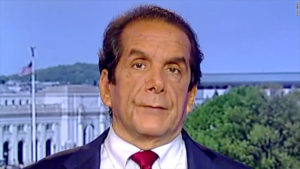Let me try to keep this straight.
Donald Trump wants Russia returned to the economic group comprising the world’s leading economic powers. The Russians were kicked out of what was known as the G-8 because it annexed Crimea and launched military action against Ukraine; they have done not a damn thing to remove themselves from that conflict.
Meanwhile, the president chastises our actual allies and trading partners because they object to the punishing tariffs he has imposed on steel and aluminum they export to the United States.
What am I failing to grasp?
Trump’s pique against Canada is particularly galling. Prime Minister Justin Trudeau objects to Trump’s description of Canada as a “national security risk,” pointing out how Canadians died alongside Americans on the beaches in Normandy during World War II and how the nations have been the closest of allies for many decades.
Trump says Trudeau is being “indignant.”
Good grief!
Now he wants the Russians back in.
According to The Hill: “Whether you like it or not, and it may not be politically correct, but we have a world to run,” Trump said. “And in the G-7, which used be the G-8, they threw Russia out. They should let Russia come back in because we should have Russia at the negotiating table.”
Oh, and then we have the Russian meddling in our 2016 presidential election. Right there is a legitimate, tangible, identifiable, demonstrable risk to our national security.
So help me, the man elected as president of the United States himself is a frightening risk to our national security and sovereignty.





